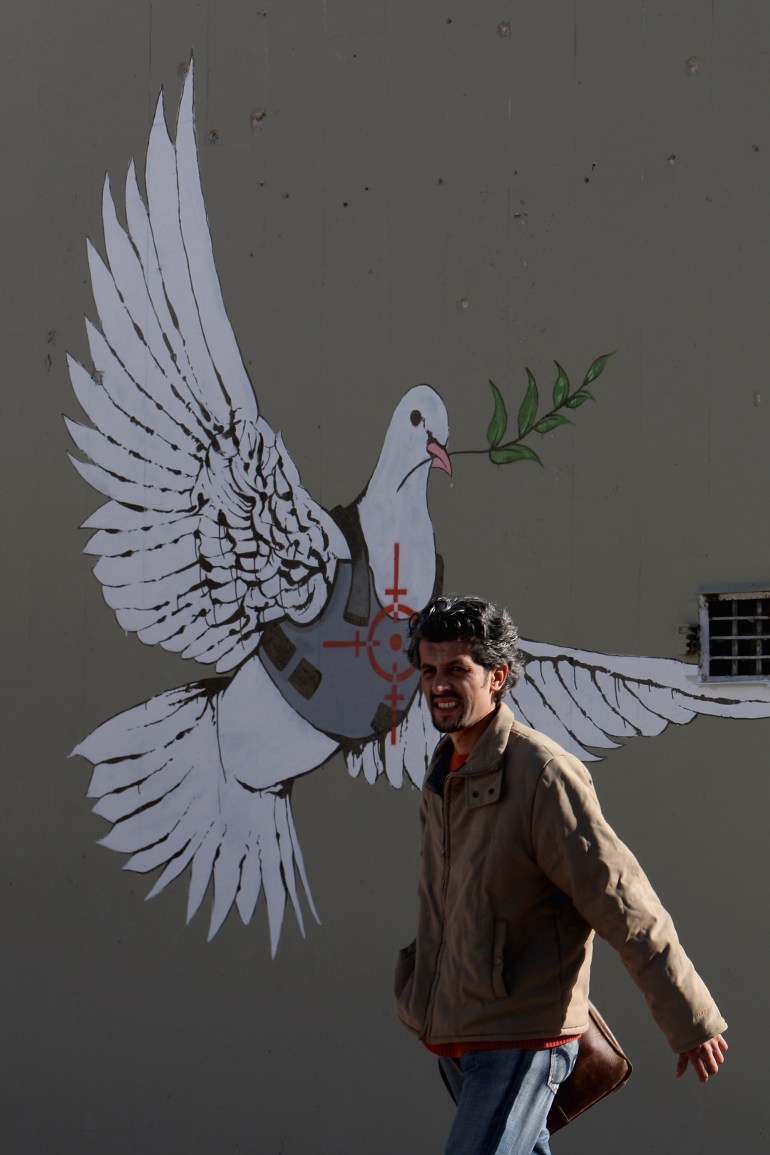The Australian cricketer, Usman Khawaja, has accused the International Cricket Council (ICC) of double standards – this time after being denied permission to display the image of a dove of peace on his bat, in solidarity with Gaza.
What happened between Khawaja and the ICC?
Khawaja planned to show his support for Palestine by decorating his bat with the image of the dove accompanied by the message “01: UDHR”, a reference to the first article of the Universal Declaration of Human Rights, which states that human rights are universal and inalienable.
According to The Australian newspaper, the ICC has refused to allow him to display this message on his bat.
The ICC Code of Conduct forbids players from wearing, displaying or conveying messages through arm bands or other items on clothing or equipment without prior approval, especially for “political, religious or racial” causes.
However, Khawaja and his supporters point out that this rule has not stopped other players from displaying such messages in the past.
For example, West Indies players were permitted to wear “Black Lives Matter” logos on their shirts during a test series against England in 2020.
In a video he posted on Instagram late on the eve of the second test against Pakistan at the Melbourne Cricket Ground (MCG) on Monday, Khawaja also posted pictures of other international players displaying religious symbols and messages on their bats.
He captioned his post: “Merry Christmas everybody, sometimes you just gotta laugh … #inconsistent #doublestandards.”
Khawaja’s case is not the only instance when the ICC has blocked a player from displaying such symbols. England’s Moeen Ali was banned from wearing wristbands with the messages, “Save Gaza” and “Free Palestine”, during a home test against India in 2014.
Khawaja’s armband and shoes
Pakistan-born Khawaja has made several attempts this month to show his solidarity and support for the people in Gaza, where more than 20,000 Palestinians have been killed in Israeli attacks.
On Friday, he said he would contest ICC’s reprimand for wearing a black armband in the first test against Pakistan in Perth on December 14.
He had originally intended to show his support by displaying the messages “Freedom is a human right” and “All lives are equal” on his shoes in the colours of the Palestinian flag. He wore these shoes during training and intended to wear them during the test match as well, but was prevented from doing so. He argued that his message was not political in a video posted on X on December 13.
All Lives are Equal. Freedom is a Human right. I’m raising my voice for human rights. For a humanitarian appeal. If you see it any other way. That’s on you… pic.twitter.com/8eaPnBfUEb
— Usman Khawaja (@Uz_Khawaja) December 13, 2023
Khawaja, 37, argued that the armband decision did not make sense.
“I told them it was for a personal bereavement. I never ever stated it was for anything else. The shoes were a different matter, I’m happy to say that,” he said at Melbourne Cricket Ground. He did not specify details about the personal bereavement.
Thank you to all those who supported and gave me love this week. It wasn’t unnoticed 💕. Nothing worthwhile is easy. History shows we are doomed to repeat the mistakes of our past. But together we can fight for a better future. 🙏🏾 #freedomisahumanright #alllivesareequal pic.twitter.com/HAhbebDbCT
— Usman Khawaja (@Uz_Khawaja) December 18, 2023
What does the dove of peace represent?
Doves have long been a symbol of peace in many cultures, including Palestinian culture.
The separation wall that divides many communities including the Palestinian town of Bir Nabala in the occupied West Bank has several different graffiti symbols painted onto it including the dove of peace. A section of the wall runs through Bethlehem.
British street artist Banksy’s armoured dove is particularly celebrated. It features a white dove wearing a bulletproof vest, carrying an olive branch in its beak. This dove can be seen in many spots in Palestine.

How have others reacted?
Australian skipper Pat Cummins defended Khawaja, arguing that there is no difference between Khawaja displaying the dove symbol and his teammate, Marnus Labuschagne, displaying an eagle on his bat as a religious symbol.
The Australian team was sympathetic towards Khawaja’s desire to show his support, said Cummins on Monday.
“I don’t know the ins and outs of the application, but I think it is pretty vanilla, a dove,” he told reporters. “We really support Uzzy, I think he’s standing up for what he believes and I think he’s doing it really respectfully,” he said.
“He can hold his head high the way he’s gone about it, but there’s rules in place, so I believe the ICC have said they’re not going to approve that. They make up the rules and you’ve got to accept it.”
Cricket Australia said in a statement that Khawaja had a right to express his opinion but they expected him to conform to the ICC rules banning displays on his playing equipment.
Australia’s sports minister, Anika Wells, gave Khawaja her full backing.
“Usman Khawaja is a great athlete and a great Australian. He should have every right to speak up on matters that are important to him,” she said.
“He has done so in a peaceful and respectful way. He has done so as an individual and expressed an individual opinion that does not compromise the Australian cricket team’s obligations to the ICC.”